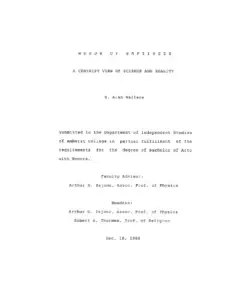
What is contemplative science?
Contemplative science is the empirical investigation of the mind and its functions using the skills of highly refined attention, mindfulness, and introspection. The discipline is practiced by contemplative scientists: professional contemplatives who have completed years of rigorous meditative training, on a par with the graduate training completed by neuroscientists, psychologists, and physicists, or with the athletic training completed by the world’s Olympians.

A Rapidly Widening Discipline
The term “contemplative science” itself was coined by CCR co-founder Dr. B. Alan Wallace, who discusses the concept in his 1986 honors thesis at Amherst College, and further develops the concept in numerous later published works. Contemplative science as an area of study has since grown in popularity, with entire centers at universities now bearing the name, given the broad recognition of the challenges and importance of understanding consciousness and the position of the conscious observer, and increasing interest in the profound impacts of mind training on well-being.

Contemplative Technology
The CCR is supplying the resources and environments needed to realize the full potential of contemplative science, which treats contemplatives themselves as research colleagues whose discoveries are important in a research process. Contemplative training refines a person’s attention skills to a degree that is now exceedingly rare: advanced practitioners can remain perfectly attentive, without a moment of distraction, for hours on end. This level of attentional acuity — a form of contemplative technology — enables a wide variety of research protocols that are simply impossible without it.
Unlocking New Methodologies
While much research treats contemplatives simply as subjects of third-person investigations, contemplative scientists can not only serve as participants in other scientists’ studies but also function as professional colleagues who can propose testable hypotheses, produce empirical data, and make genuine discoveries. First-person data from contemplatives can be integrated with third-person data of the various sciences, enabling an unprecedented convergence of evidence. The CCR’s mind labs are carefully managed, highly conducive environments for full-time contemplative training and collaboration with scientists.

At the CCR, this form of contemplative-scientific inquiry is focused on two main research topics:
- the nature and potentials of consciousness; and
- the nature and potentials of genuine well-being.
Related Resources
Words of Emptiness: A Centrist View of Science and Reality
The Nature of Contemplative and Scientific Discoveries
Choosing Reality: A Buddhist View of Physics and the Mind



